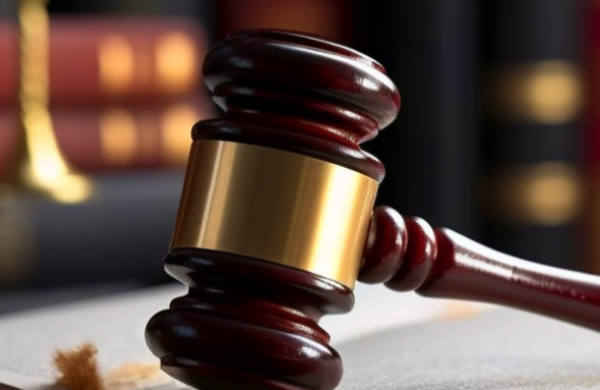Did not receive verification mail? Please confirm whether the mailbox is correct or not Re send mail

IPR Daily
- 2022-04-29 23:05:07
Sponsored Briefing: Use Requirement of Trade Marks and Potential Consequences of Non-use under Turkish Law-Part 2
The first part please click here.
Potential Consequences of Non-Use under the IP Law
The IP Law regulates two main potential consequences for non-use of the trade marks upon the completion of the five-year grace period. First, partial or total revocation of the trade mark based on non-use can be claimed by any interested parties.10 Secondly, applicants in the opposition actions or defendants in invalidation and/or infringement actions initiated by the trade mark owner have the right to assert a ‘non-use defence’ against the trade mark owner’s vulnerable trade marks, which are the bases of these actions.
It should be noted that under the IP Law, neither the courts nor the Office has the authority to conduct an ex-officio examination of whether the use requirement is satisfied for the trade marks after the completion of the relevant grace period. Thus, a revocation claim or a non-use defence must be asserted by the third parties in order for the consequences attached to non-use of vulnerable trade marks to materialise.
a. Revocation of the trade mark based on non-use
The heaviest consequence regulated under the IP Law for the non-use of the trade marks is the partial or total revocation of the trade mark based on non-use upon a claim asserted by the interested parties. Under the late Trademark Decree Law, revocation based on non-use of a trade mark could only be claimed in a court action filed against the trade mark owner. Under Article 26 of the IP Law, the authority to decide on partial or total revocation of trade marks has been transferred from the courts to the Office. However, the enforcement date of the relevant provision granting this authority to the Office has been postponed for seven years and thus, the Office will begin hearing revocation claims based on non-use after 10 January 2024.
Article 26 of the IP Law has introduced a new and more simplified procedure for the evaluation of non-use revocation claims by the Office. While it has been enacted that the courts shall also follow this procedure until the authority transfer takes effect, it is observed in practice that the courts continue to follow the general jurisdiction procedure under the Turkish Civil Procedure Law numbered 6100. It is expected that the revocation proceedings would be expedited once the TPO begins to evaluate non-use revocation claims, but the actual impact of this change in practice is yet to be seen.
b. The non-use defence
Under the Trademark Decree Law, the only potential consequence attached to non-use of vulnerable trade marks was their partial or total revocation by the courts upon a revocation claim asserted by the third parties. The non-use defence has been introduced for the first time by the IP Law as an important revenue against vulnerable trade marks which are the basis of opposition, invalidation and/or infringement actions initiated by the trade mark owner.
Under Article 19 of the IP Law, applicants are entitled to challenge the oppositions against their applications by submitting a non-use defence against the opponents’ vulnerable senior trade marks on which the oppositions are based. This requires the opponent to prove that their trade marks have been properly put to use in the Turkish market within five years prior to the application date of the opposed application. The senior trade marks for which the opponent cannot prove its proper use within the past five years would be excluded from the basis of the opposition. If use can only be proven for certain goods and/or services, the Office only takes into consideration such goods and/or services in the evaluation of the opposition.
It should be noted that failure to prove use of the trade marks will only affect the Office’s examination of the opposition ground based on likelihood of confusion between the trade marks and will not affect the examination of other opposition grounds, such as well-known status, bad-faith etc.
Under Articles 25 and 29 of the IP Law, the non-use defence can also be raised by the defendants before the courts in invalidation or infringement actions filed by the trade mark owners, against their trade marks which have been registered for more than five years at the filing date of these actions. In such case, the owner must prove genuine use of its ground trade marks for the five-year term prior to the filing date of the actions. For invalidation actions, if the trade marks, which are the basis of the action, are registered for at least five years at the application date of the defendants’ trade marks, the trade mark owner must also additionally prove use of the trade marks for the five-year term prior to the application date of the defendants’ trade marks.
It is important to note that failure to prove use of the ground trade marks in the face of a non-use defence will not lead to their revocation. In order for the trade mark to be revoked, a non-use revocation claim should be separately asserted by the counterparty via a non-use revocation action before the courts.
Conclusion
The IP Law has expanded the scope of the potential consequences attached to non-use of the trade marks, by granting the option to the applicants and defendants to raise the non-use defence against trade mark owners’ vulnerable trade marks in opposition, invalidation and infringement actions. Further changes in the practice will also take place in respect of the non-use revocation claims asserted against vulnerable trade marks, once the TPO begins to hear these claims as of 10 January 2024. Thus, trade mark owners with trade marks registered for more than five years should carefully consider these potential consequences in deciding to enforce their trade marks against third parties.
Source: legalbusiness.co.uk
Editor: IPR Daily-selly
- I also said the two sentence
- Also you can enter 140words
 TOP IPR U.S. Lawyers 10 & Firms 10 Selection Officially Launched by IPR Daily
TOP IPR U.S. Lawyers 10 & Firms 10 Selection Officially Launched by IPR Daily WIPO Global Innovation Index 2025: China Enters Top 10
WIPO Global Innovation Index 2025: China Enters Top 10 Singapore ranks 5th in the 2025 Global Innovation Index; climbed two spots in Innovation Outputs
Singapore ranks 5th in the 2025 Global Innovation Index; climbed two spots in Innovation Outputs Federal Circuit lacks jurisdiction over award that doesn’t raise issue of patent law
Federal Circuit lacks jurisdiction over award that doesn’t raise issue of patent law


